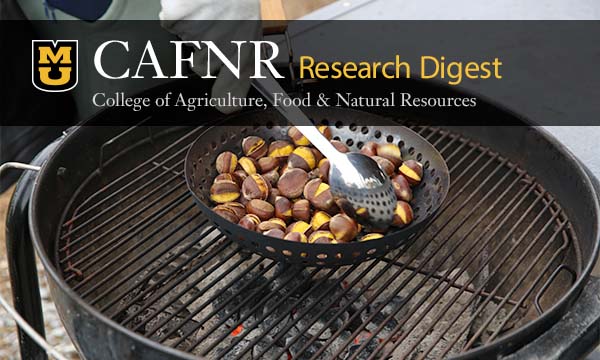|
The United States Department of Agriculture (USDA) National Institute of Food and Agriculture (NIFA) has announced awardees of its AFRI Sustainable Agriculture Systems Program. Two CAFNR researchers were part of the 2021 awards.
Keri Jacobs, associate professor of agricultural and applied economics, and Morgan Davis, assistant professor in soil and environmental sciences, received funding for a study led by researchers at Iowa State University titled “Regenerating America’s Working Landscapes to Enhance Natural Resources and Public Goods through Perennial Groundcover (PGC).” The University of Missouri (MU) is among seven universities and stakeholder organizations leading this five-year, $10-million grant. MU received $660,000 for their portion of the project.
Iowa State researchers are developing new approaches to cover crops that incorporate perennial groundcovers, a development that could break down barriers keeping farmers from adopting cover crops.
“I have worked with Dr. Raman at Iowa State and many of the researchers on this team and am honored to be invited to help tackle big challenges in the agriculture industry,” said Jacobs.
Annual cover crops require farmers to plant and harvest them every year, a labor intensive and costly process. This project is reimaging cover crops for farmers. Researchers are asking the question of, what if farmers plant a perennial grass that grows in the spaces between rows but won’t compete with cash crop for nutrients and won’t affect yield? What if this hypothetical perennial groundcover required little effort to manage?
Davis will lead the team to examine the environmental impacts of PGC implementation. The Davis team will serve as experts on nutrient and carbon losses. The team will collect a comprehensive data set, including a suite of soil health properties and greenhouse gas emissions. This data will be used to inform models to assess the overall sustainability of PGC systems.
“The group Iowa State has assembled is top notch,” said Davis. “My piece of the project will focus on how these systems change the soil and their impact on the environment. The systems approach to this project really gets at the heart of the interdisciplinary work my group is striving for to improve ecosystem sustainability.”
Jacobs is the CO-PD and Objective Leader for the “Socioeconomic Impacts and Policy” area. Jacobs’ group will explore the role of input-supply agribusinesses and cooperatives in Missouri in a PGC supply chain to help understand the opportunities. This objective area evaluates the conditions and policies under which the proposed Perennial Groundcover practices are economically sustainable for farmers and input suppliers and to enhance farmer and consumer well-being.
“For me, this project is an opportunity to jointly advance two professional and personal passions; to help producers as they pursue agri-enviro sustainability on their farms and to be a catalyst for improving farmers’ market power and success through producer ownership in their markets,” said Jacobs.
|
